When faced with a rental application denial, it's completely natural to feel disheartened, but don't lose hope just yet! Understanding the reasons behind the decision can empower you to craft a compelling appeal that highlights your strengths as a tenant. By clearly presenting your case, addressing any concerns, and showcasing your reliability, you enhance your chances of a favorable reconsideration. Curious about how to structure your appeal letter effectively? Let's dive deeper into the essentials that will help you make your voice heard!
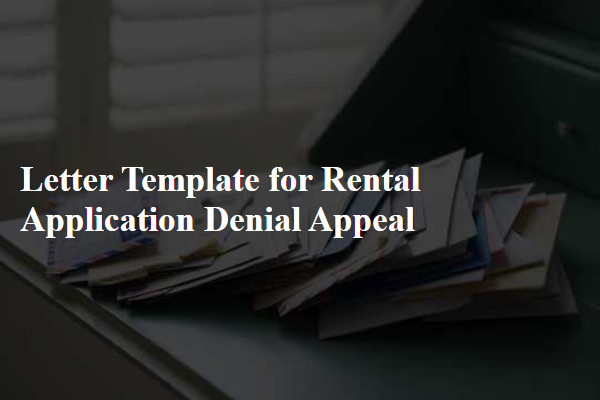
Tenant's Personal Information and Contact Details
When appealing a rental application denial, including essential personal details enhances clarity. Applicant's full name (ensuring accurate identification), current address (providing context for the application location), phone number (facilitating direct communication), and email address (enabling prompt responses) are crucial. Also include the date of application submission (establishing a timeline) and the name of the landlord or property management company (targeting the appeal to the appropriate party). Additionally, referencing the specific rental property address (pinpointing the location in question) strengthens the appeal by directly connecting it to the denial circumstance.
Clear Statement of Appeal Intent
A rental application denial appeal must clearly articulate the intent to challenge the decision made by the landlord or property management. The applicant should express their desire to provide additional context or information that may have been overlooked during the initial review process. Essential details include the property address, the date of the application submission, and the specific reasons cited for the denial, such as insufficient credit history or income verification. Including supporting documentation, like recent pay stubs, references, or a letter of intent to secure a co-signer can strengthen the appeal. Demonstrating a commitment to open communication and explaining any changes in circumstances since the initial application can foster a more favorable reconsideration.
Reference to Original Application and Denial Reason
A rental application denial can often be a significant setback for prospective tenants. When addressing a denial, applicants should focus on the initial application details and the specific reason for denial. Applicants may cite references from the original application, highlighting positive aspects such as stable employment history, timely payment records, and positive landlord relationships. If the denial reason pertains to a low credit score (for instance, under 600), applicants could provide context such as efforts made to improve this score, debt repayment initiatives, or recent financial improvements. Detailing any misunderstandings or providing missing information can also strengthen the appeal. The goal is to present a well-rounded, compelling case to reconsider the application based on comprehensive and factual information.
Explanation and Additional Supporting Documentation
Rental application denials can lead to frustration for potential tenants seeking housing opportunities. An appeal often requires a clear explanation of the reasons behind the denial, such as credit history discrepancies, income verification issues, or rental history concerns. Supplementing the appeal with additional supporting documentation, including recent pay stubs reflecting stable income (preferably three months or more), letters of recommendation from previous landlords highlighting responsible tenancy, or proof of timely bill payments, can strengthen the appeal's case. Noting local tenant rights, such as Fair Housing laws applicable in cities like Los Angeles or New York, can also be beneficial. Having pets may necessitate confirming pet deposits or pet references, depending on the property's policy.
Polite Request for Reconsideration or Meeting
Rental applications can be denied for various reasons, leading to significant disappointment for potential tenants. Common reasons for denial include insufficient income verification, unfavorable credit history, or past eviction records. Residents in urban areas, such as New York City or Los Angeles, often face more stringent criteria due to high demand and competitive rental markets. In these situations, a polite request for reconsideration may facilitate a discussion with property management regarding specific concerns in the application. Engaging directly with landlords or property managers allows applicants to provide additional documentation, clarify misunderstandings, or demonstrate reliability despite prior issues. During the appeal process, maintaining professionalism and respect can contribute positively to the outcome.
Letter Template For Rental Application Denial Appeal Samples
Letter template of rental application denial appeal for financial hardship.
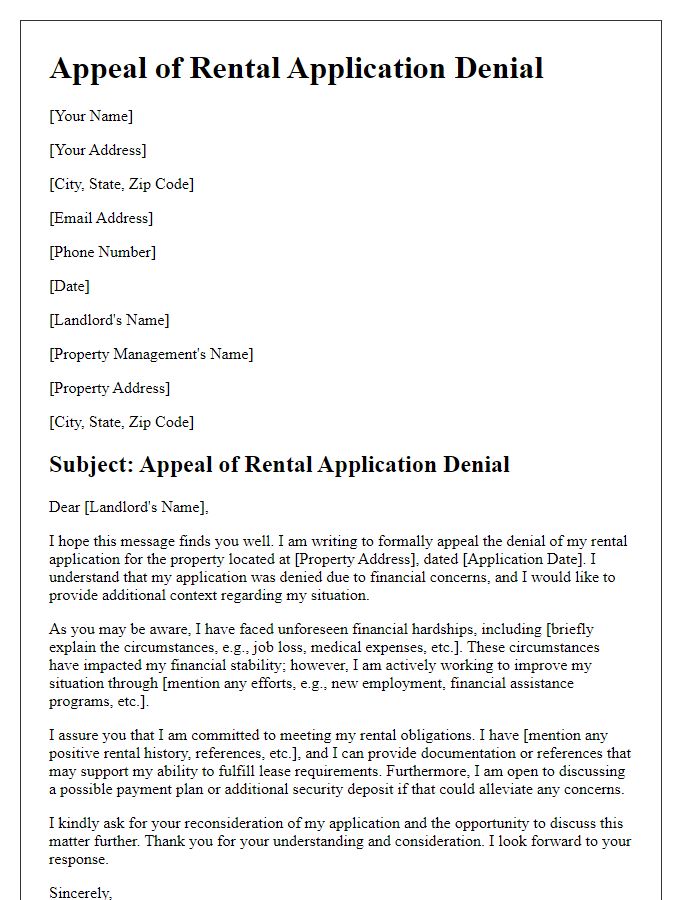
Letter template of rental application denial appeal for miscommunication.
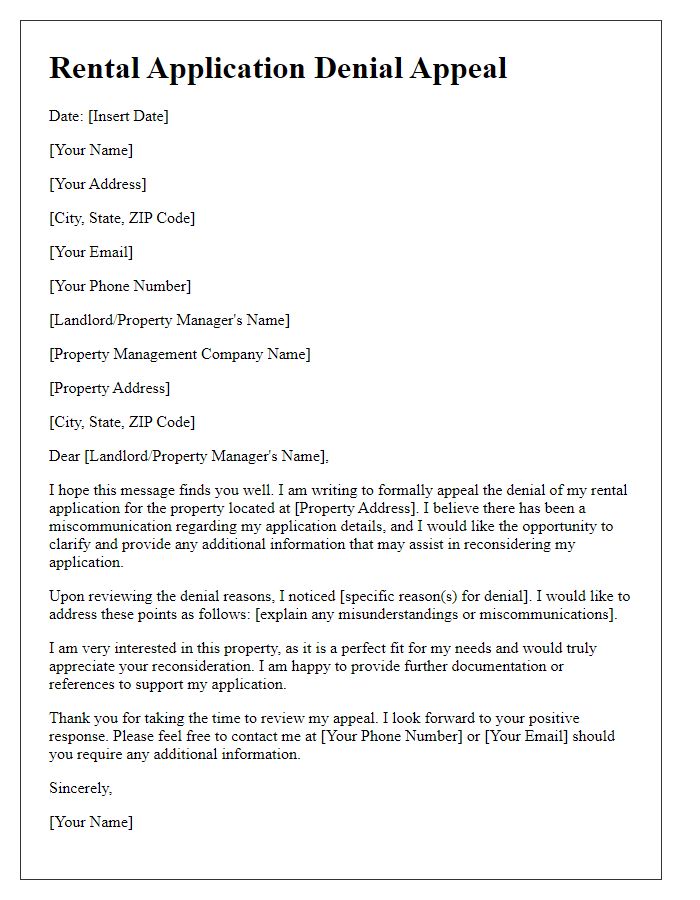
Letter template of rental application denial appeal for previous landlord reference issue.
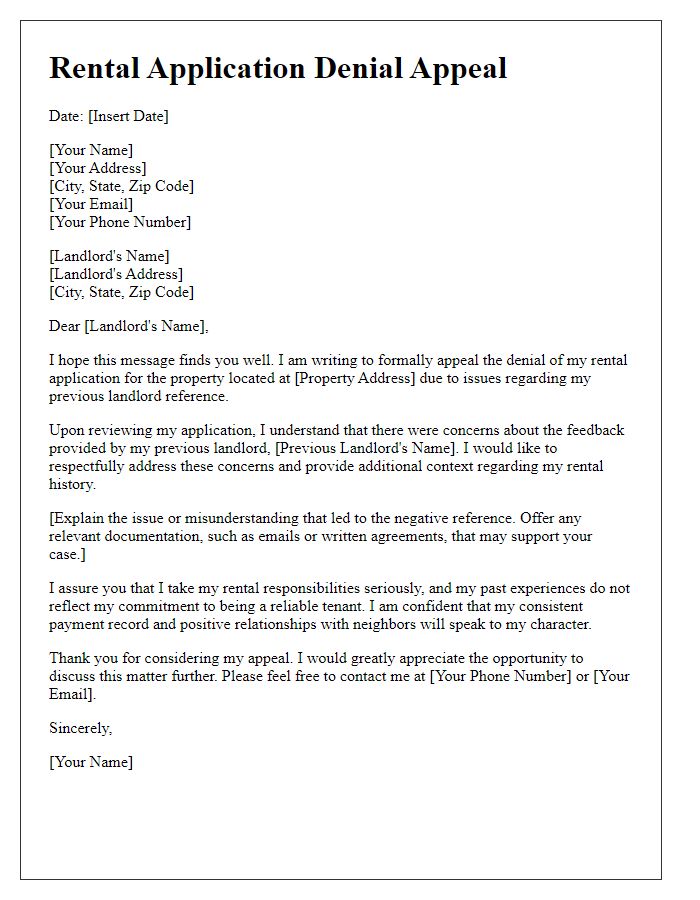
Letter template of rental application denial appeal based on credit score explanation.
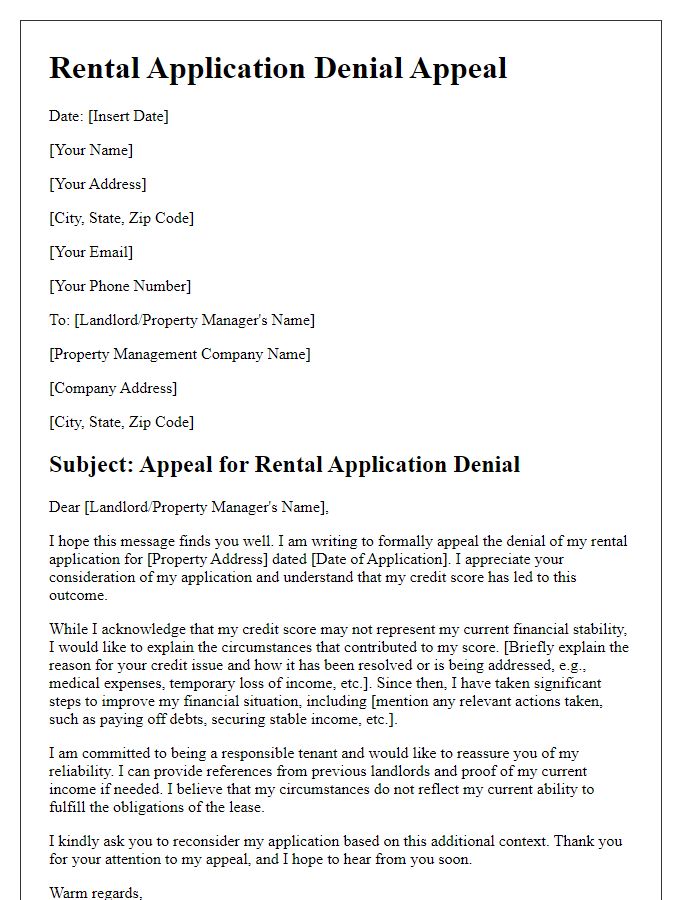
Letter template of rental application denial appeal for additional guarantor support.
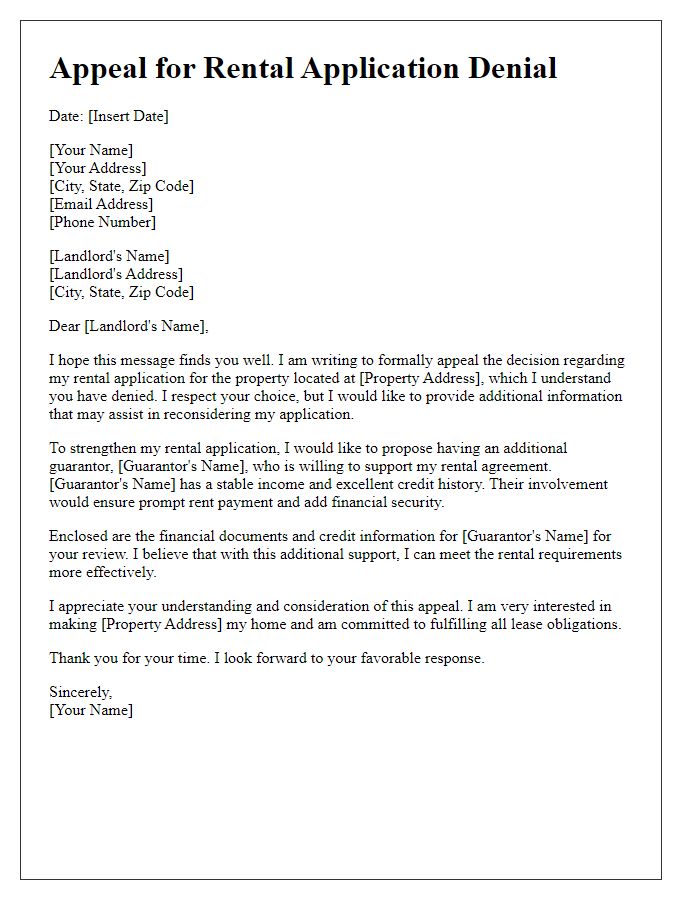
Letter template of rental application denial appeal addressing personal circumstances.
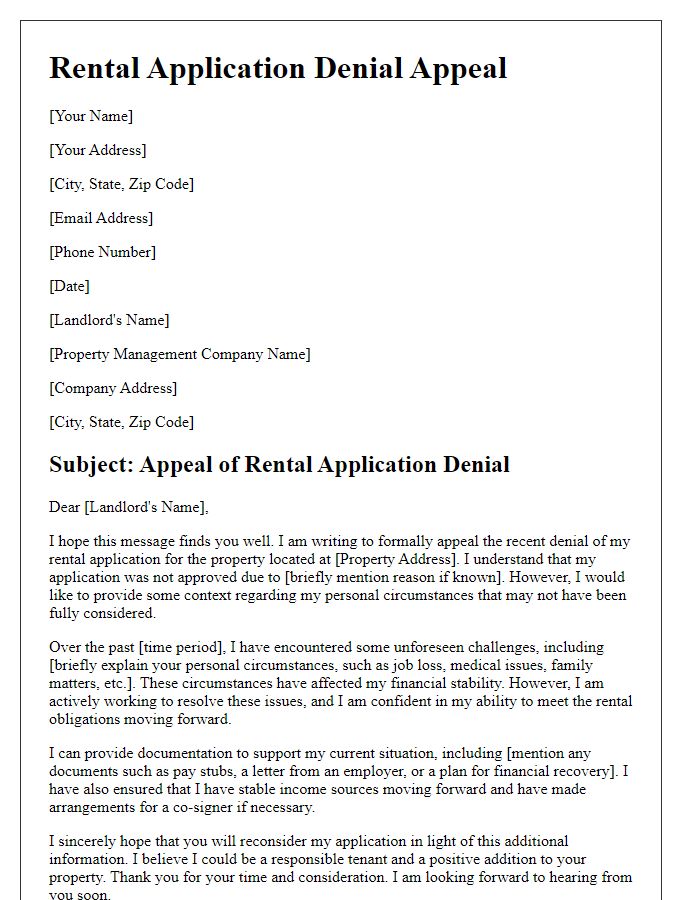
Letter template of rental application denial appeal with updated documents included.
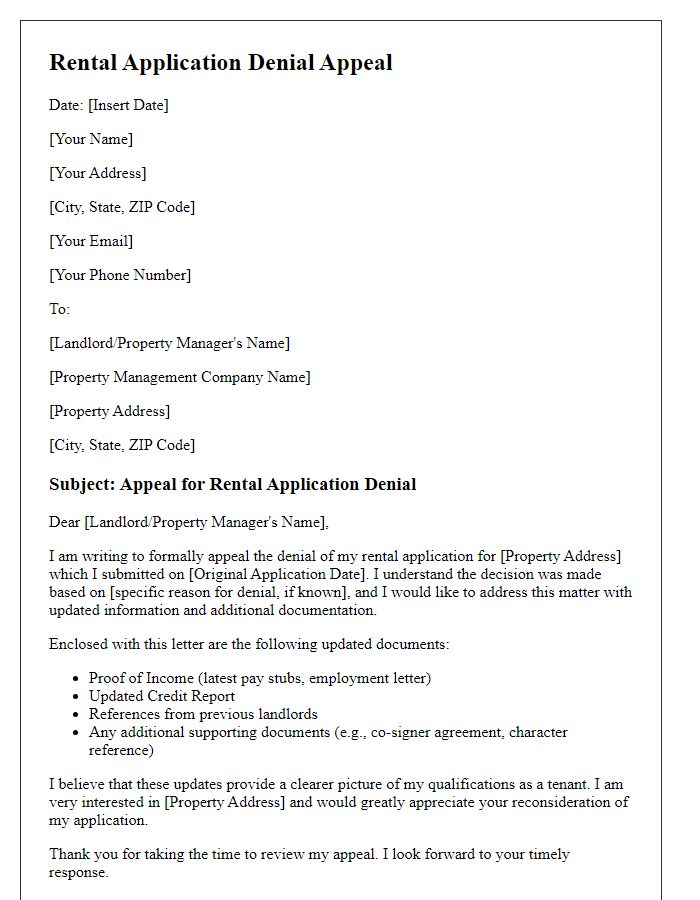
Letter template of rental application denial appeal for clarifying work history.
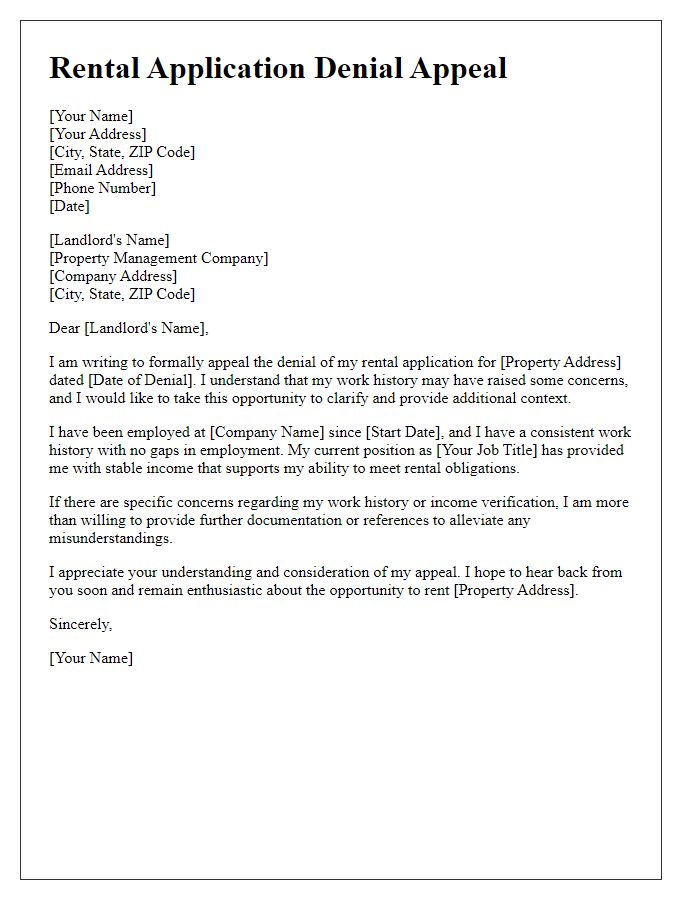
Letter template of rental application denial appeal for correcting application errors.
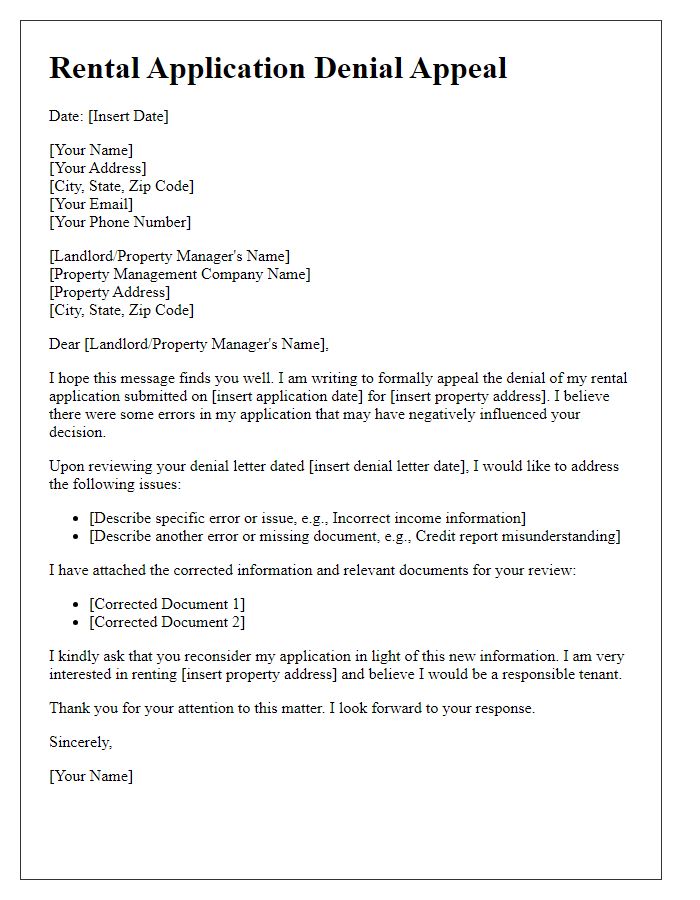

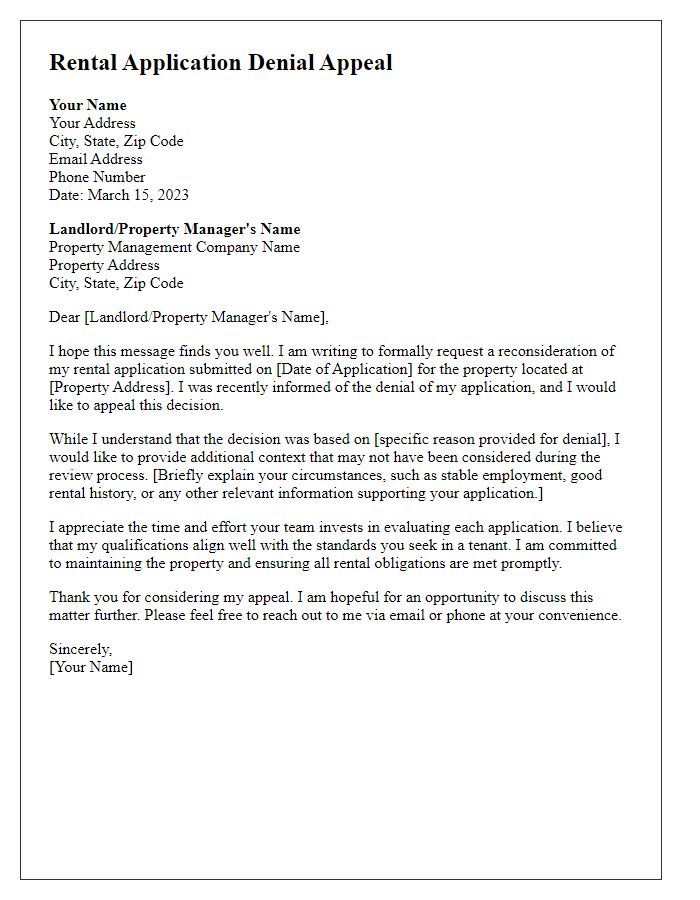


Comments